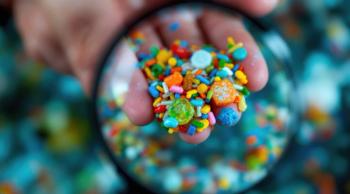
Comprehensive Chemical Analysis of Saline Samples
Webinar Date/Time: Tue, Jun 25, 2024 11:00 AM EDT
Are you looking for better analytical performance of your seawater or brine analysis laboratory? During this webinar you will learn how to optimize analytical procedures and how state-of-the-art instrumentation can contribute to better results.
Register Free:
Event Overview:
The analysis of saline samples like seawater and brines for major, trace and ultratrace elements, total organic carbon (TOC), and organic halides (AOX/TOX) presents several challenges to the analyst and the instrumentation used. These challenges are mostly due to their elevated content of dissolved salts, which can cause excessive wear on consumables, increased effort for sample preparation, and interference, leading to inaccurate results.
During this webinar, instrument features and accessories simplifying the analysis workflow will be discussed, as well as best practices that minimize manual labor, extend the lifetime of consumables, and improve analytical accuracy.
Key Learning Objectives:
- Explore analytical challenges and solutions in the analysis of saline sample matrices
- Understand methodological considerations to improve analytical performance
- Learn about analyzer technologies and accessories for reliable routine analysis
Who Should Attend:
- Laboratory managers and analysis in the field of environmental analysis
- Operations, compliance and lab managers, and analysts processing brines
- Researchers involved in brine and seawater analysis
Speaker:
Oliver Buettel
Product Manager
Analytik Jena
Oliver Buettel started his career with Analytik Jena in 2006 as an application specialist for atomic spectroscopy at the headquarter in Jena, Germany. Since then, he has taken various roles in the spectroscopy department and in product management.
In 2017, he moved to the United States to support the growth of the North American organization with his expertise. As the product manager for North America, he also manages the Analytik Jena US Application Lab in Houston, Texas.
Register Free:
Newsletter
Get essential updates on the latest spectroscopy technologies, regulatory standards, and best practices—subscribe today to Spectroscopy.




